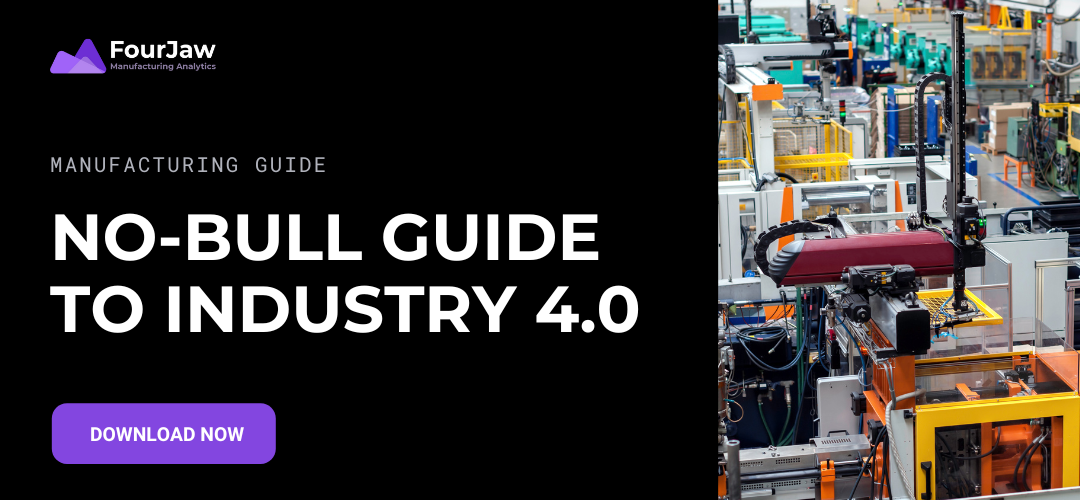Over the last four years, The Manufacturer has been at the cutting edge in reporting the progress of industrial digitalisation in the UK. From the start its editors grasped how the advent of smart tech and the smart factory could make a significant difference not only to the fortunes of individual firms but also to the wider UK economy: improving productivity, international competitiveness and driving step changes in digital skills.
Their writers cut through the jargon and the marketing hype to show how industrial digitalisation could be a game changer for UK industry, and why failure to harness this technology to their operations could accelerate the decline of our manufacturing base.
So it is a privilege to feature in the latest edition of the magazine, alongside some of the major players in the industry like Autodesk who have made clear connections between both productivity and Industry 4.0 and the quest for net zero carbon.
Although our background is from the frontiers of academic research, we spend most of our time on planet earth and especially on the shop floor. This is always a humbling and rewarding experience. It keeps us in tune with the minute-by-minute challenges facing machine tool operators and their managers and makes us aware that, the sometimes exaggerated, marketing hype can lead to distrust in the power of tech.
Such distrust makes the ambitious goals of the Made Smarter initiative – launched in 2017 as a central plank of the now defunct Industrial Strategy – all the more difficult to achieve. Back then, the former CEO of Siemens in the UK, Juergen Maier, who led the Made Smarter Review, declared that the faster adoption of digital technologies could have a ‘positive impact on the UK’ in the region of £445 billion over the next decade; increase manufacturing growth between1.3% and 3% each year; lead to a conservative estimate of 175,000 net gain jobs; and reduce CO2 emissions by 4.5%. Overall, the Review declared “we are confident that industrial productivity can be improved by more than 25% by 2025”.
A pilot scheme in the North West was launched in late 2018 at the Digital Manufacturing Week. While its first report claimed some success when it was published in January of this year, the programme is still to be rolled out across the country despite clear signals at the launch that this ‘would happen in the very near future’. That now leaves just four years for Made Smarter to meet its stretching targets, which is a major challenge. It would be bad news for UK manufacturing if the grand promises of Made Smarter are not reached and confidence in industrial digitalisation takes another blow.
Industry 4.0 viewed from the Factory floor
In an earlier blog we cast a quizzical eye on just one aspect of Industry 4.0 which is currently getting a lot of air time: artificial intelligence and machine learning. We viewed it not from the quiet world of the academic research lab, or the noisy world of marketing, but from the perspective of a production manager or puzzled CEO working in a fast paced and constantly changing industrial environment. An environment where the lack of context from machining data presents formidable – but not insurmountable – hurdles to using AI to unlock the promised improvements in productivity.
Over-inflated claims
Our conclusion on machine learning? Well, there’s still a huge amount of learning to do before the challenges of manufacturing can be solved by one big thump of this particular Industry 4.0 hammer. We also came to realise that, as so much of Industry 4.0 in the UK seems to take place in the virtual world and the marketing world it is essential for small and medium sized firms to give any promise of ‘digital transformation’ a short, sharp reality check. FourJaw’s blogs will be doing just that over the coming weeks and months. Kicking the Industry 4.0 tyres to see whether they are over-inflated or road worthy.
Any smart tech approach to shopfloor productivity has to be nuanced. It has to have a deep understanding of the context and the environment in which it will be used. That’s why the primary goal of FourJaw is not to reach for out-of-the-lab, or off- the-commercial-shelf solutions, but to build software that accurately describes and understands manufacturing environments with all their quirks and subtleties. That’s the approach we have taken in developing our smart App and MachineLink which we like to see as an accessible and affordable first step on the road to Industry 4.0



